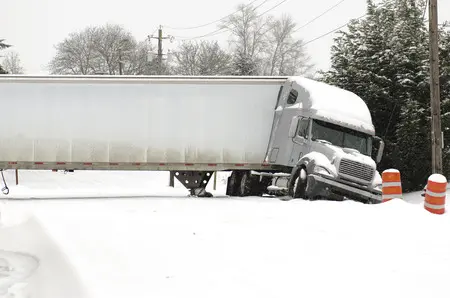Gov’t shutdown halted investigation of deadly crashes
Amid the 35-day partial government shutdown earlier this year, NTSB investigations of deadly crashes were put on hold. At this point, crucial evidence may be lost forever.
On December 22, 2018, the United States government came to a grinding halt in what would become the longest government shutdown in U.S. history. The shutdown, which was temporarily brought to an end on January 25, 2019, not only left government workers furloughed or working without pay for 35 days, but also negatively impacted several federal agencies and organizations.
One such agency is the National Transportation Safety Board (NTSB). The NTSB is responsible for determining the probable cause of transportation accidents, promoting transportation safety, and assisting victims of transportation accidents and their families. Any delay in investigations has the potential to prevent insurance companies from paying claims to victims and their families as well as preventing justice from being served in the event of criminal cases.
During the government shutdown, the NTSB was forced to furlough 90% of its employees. This put a majority of investigations that the agency was conducting on hold. This led to a growing backlog of accidents that need to be investigated, as well as 22 investigations of transportation accidents that never even began. These uninvestigated accidents include 15 aviation accidents, which resulted in 21 fatalities; three marine accidents; two railroad accidents, which resulted in two fatalities; and two highway accidents which resulted in seven fatalities.
In total, the shutdown delayed 97 crash investigations, NTSB Chairman Robert Sumwalt said.
Had the government not been shut down, these investigations would have been started in a timely manner. If investigators are unable to physically visit the site of the accident, perishable evidence may be lost. The loss of important evidence has the potential to prevent investigators from determining the probable case of an accident. Physically visiting the scene of an accident allows investigators to get exposure to the events that occurred which led up to the accident.

Typically, investigators have the ability to visit the scene or examine the wreckage and evidence in a storage facility. But the system is designed to respond immediately. Any delays in investigations could result in lost evidence or the inability to determine the cause of an accident. Since the government shutdown began, work on over 1,800 ongoing aviation accidents and dozens of rail, marine and highway accidents was stopped. These investigations could not resume until after the government was reopened. During this time, it was highly likely key evidence was destroyed, mishandled, or lost before it could be analyzed.
Since the government shutdown came to a temporary end on January 25, 2019, the NTSB has returned to work and resumed the investigations that were put on hold. However, the effects of the shutdown have not ended. They must now attempt to work through the backlog of investigations that accumulated during the shutdown. Wreckage from the accidents was moved to a storage facility, making it likely that any other evidence pertaining to the accidents has been lost. As personal injury lawyers who have handled numerous major crash investigations, we know that there is no substitute for examining the accident scene itself. And the more time that goes by, the greater the chances that evidence will be lost or compromised.
It is also important to note that the temporary shutdown has a February 15 deadline. If Congress cannot come to an agreement on border security by then, President Trump has warned of the possibility of another government shutdown. If the government were to shut down again, the NTSB would once again be forced to pause all of their investigations and continue to add to the cases they have not even had the opportunity to begin investigating, once again creating the potential for lost or destroyed evidence and the possibility that cases will not be solved.
Posted in Munley News.









